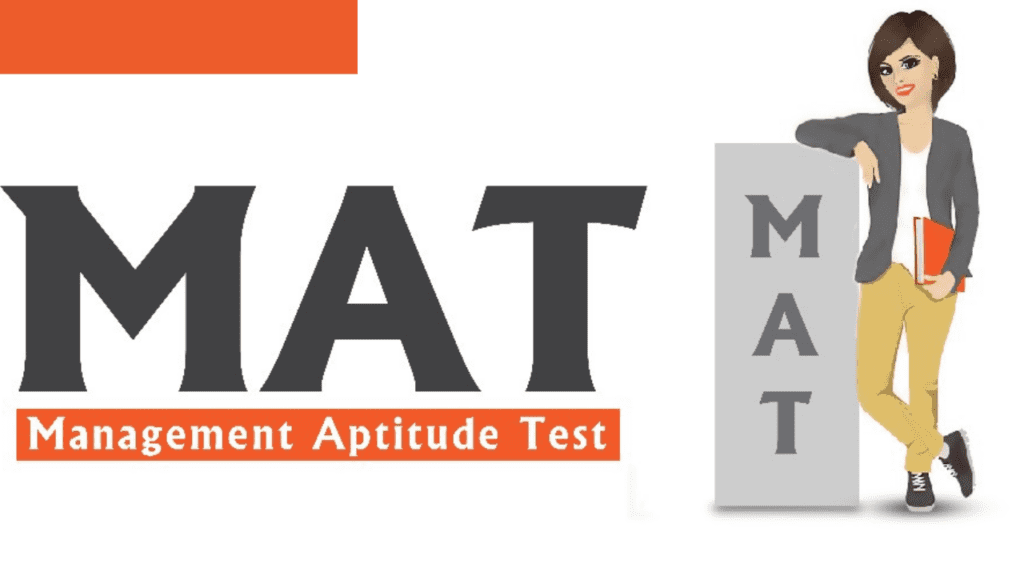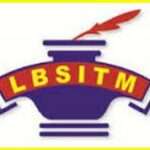Looking How to crack MAT exam and secure a spot in esteemed management institutes? The Management Aptitude Test (MAT) is a crucial stepping stone for aspiring business leaders, assessing their aptitude and skills for the challenging world of business and management. In this comprehensive guide, we unfold a strategic approach and invaluable tips to help you ace the MAT exam with confidence and excellence. Whether you’re a first-time test-taker or aiming for an improved score, this guide will equip you with the necessary insights to embark on a successful MAT exam journey. Let’s dive into the strategies that can make a significant difference in your MAT exam preparation.
- Understanding the MAT Exam Structure
- Creating a Study Plan
- Section-wise Preparation:
- Utilizing Official MAT Resources
- Enhancing Vocabulary and Reading Comprehension:
- Staying Informed about Current Affairs:
- Seeking Professional Guidance:
- Maintaining a Healthy Lifestyle:
- Analyzing Mistakes and Learning from Them:
- FAQ’s

Understanding the MAT Exam Structure
Understanding the MAT Exam Structure:
Exam Format:
MAT is conducted in both paper-based (PBT) and computer-based (CBT) modes, giving candidates flexibility in choosing their preferred format.
Sections:
The exam comprises multiple sections, typically including Language Comprehension, Mathematical Skills, Data Analysis and Sufficiency, Intelligence and Critical Reasoning, and Indian and Global Environment.
Question Types:
Questions are predominantly multiple-choice in nature, where candidates select the correct answer from the given options.
Total Questions:
The total number of questions varies, but it’s usually around 200-250, depending on the exam’s edition.
Marking Scheme:
Each correct answer is usually awarded 1 mark, and there is often a penalty of 0.25 marks for each incorrect answer.
Duration:
The exam typically lasts for 150 minutes, allowing a specific time limit for each section.
Sectional Time Allocation:
Candidates must manage their time effectively as different sections have distinct time allocations.
Scoring:
The composite score is calculated based on the candidate’s performance across all sections, providing an overall view of their abilities.
Percentile Calculation:
Percentile ranks are assigned based on the candidate’s relative performance compared to other test-takers, indicating their position in the overall pool of MAT candidates.
Understanding the structure of the MAT exam is essential for effective preparation and performing well on the test day.
Creating a Study Plan
Creating a Study Plan for MAT Exam: A Structured Approach
Understand the MAT Exam Syllabus:
Start by thoroughly understanding the MAT exam syllabus and the topics covered in each section: Language Comprehension, Mathematical Skills, Data Analysis and sufficiency, and Indian and Global Environment.
Assess Your Strengths and Weaknesses:
Identify your strong areas and areas that need improvement by taking a diagnostic test or reviewing your past performance in related subjects.
Set Clear Goals:
Define achievable, time-bound goals for each section and overall exam performance. Break down long-term goals into smaller, manageable targets.
Allocate Time Wisely:
Divide your available study time based on the weightage of each section. Dedicate more time to areas you find challenging.
Create a Daily and Weekly Study Schedule:
Plan a daily study routine that includes dedicated time for each section, revising concepts, practicing mock tests, and solving previous year’s question papers.
Regular Practice and Revision:
Set aside specific slots for regular practice tests and revisions to reinforce your learning and identify areas that need additional focus.
Include Short Breaks:
Allow short breaks between study sessions to recharge your mind and maintain productivity. Use this time for light physical activities or relaxation.
Adapt and Adjust:
Be flexible with your study plan and adapt to changes if you feel certain areas need more attention or if you’ve accomplished a goal earlier than expected.
Track Your Progress:
Keep a record of your daily achievements, areas for improvement, and any changes made to the study plan. Adjust goals accordingly based on your progress.
Stay Consistent:
Consistency is key to success. Stick to your study plan as closely as possible, avoiding procrastination and distractions.
Seek Guidance and Clarification:
If you encounter difficulties, reach out to mentors, teachers, or online forums to seek guidance and clarify doubts.
Stay Healthy:
- Ensure adequate sleep, a balanced diet, and regular exercise to maintain good health and energy levels during your study period.
Creating a structured study plan for the MAT exam is essential for efficient preparation. Following this structured approach will enable you to manage your time effectively, focus on key areas, and maximize your chances of success.
Section-wise Preparation:
Section-wise Preparation for MAT Exam:
1. Language Comprehension:
Understanding the Exam Format: Familiarize yourself with the question types – reading comprehension, sentence correction, and more.
Enhancing Vocabulary: Read extensively, learn new words, and use flashcards for effective vocabulary building.
Practicing Reading Skills: Regularly read newspapers, magazines, and online articles to improve reading speed and comprehension.
2. Mathematical Skills:
Grasping Core Concepts: Focus on understanding basic mathematical principles, formulas, and concepts in topics like arithmetic, algebra, geometry, and mensuration.
Practicing Regularly: Solve a variety of mathematical problems to increase your accuracy and speed.
Utilizing Shortcut Techniques: Learn time-saving tricks and shortcuts for complex calculations.
3. Data Analysis and Sufficiency:
Understanding Data Interpretation: Learn to interpret data from various charts, graphs, and tables accurately.
Enhancing Analytical Skills: Practice analyzing and drawing meaningful insights from the provided data sets.
Working on Sufficiency Problems: Master problem-solving in data sufficiency by practicing a wide range of questions.
4. Indian and Global Environment:
Staying Informed: Regularly read newspapers, watch news channels, and follow current affairs to stay updated on global and Indian events.
Exploring Business and Economics: Understand business-related terminology, economic policies, and recent developments in the business world.
Practice with Mock Tests: Take mock tests to familiarize yourself with the types of questions asked in this section.
This section-wise preparation guide for the MAT exam equips you with a targeted approach to tackle each section effectively. Focus on understanding the exam format, building foundational knowledge, practicing consistently, and staying informed about current events to boost your overall performance in the MAT exam.
Utilizing Official MAT Resources
Utilizing Official MAT Resources: A Key to Success
1. Official MAT Website:
Begin by exploring the official MAT website (aima.in) as a primary source of reliable and accurate information.
2. Access to Syllabus and Exam Pattern:
Obtain the official MAT syllabus and exam pattern available on the website to understand the structure and topics covered in the exam.
3. MAT Sample Papers:
Download MAT sample papers provided on the official website to familiarize yourself with the exam format and types of questions.
4. Previous Year Question Papers:
Utilize previous year’s question papers available on the official website to practice and gauge the difficulty level of questions asked.
5. Official MAT Study Material:
Explore any official study material or guides provided by AIMA, offering valuable insights into exam preparation.
6. MAT Online Practice Tests:
Take advantage of the official online practice tests offered on the website to simulate exam conditions and improve time management.
7. MAT Registration Guidelines:
Refer to official MAT registration guidelines available on the website to ensure a smooth and error-free registration process.
8. Regular Updates and Notifications:
Keep a check on the website for regular updates, notifications, and announcements related to the MAT exam, including important dates and changes in exam patterns.
9. Clarification of Doubts:
Reach out to the official MAT helpdesk or contact points mentioned on the website to seek clarification for any doubts or concerns regarding the exam.
10. Engage with Official Social Media:
Follow official MAT social media accounts for instant updates, tips, and important announcements, ensuring you stay informed.
Leveraging the official MAT resources is essential for effective exam preparation. These resources not only provide accurate information and study materials but also help in understanding the exam’s nuances, making your preparation well-rounded and thorough.
Enhancing Vocabulary and Reading Comprehension:
Word Lists and Flashcards:
Compile a list of challenging words from various sources and create flashcards with definitions and example sentences. Review them regularly for reinforcement.
Daily Reading Habit:
Cultivate a daily reading habit by engaging with newspapers, magazines, books, and online articles. Focus on diverse topics to broaden your vocabulary and improve comprehension.
Thematic Learning:
Group words based on themes like business, technology, sports, etc., to enhance understanding and retention. Understand their usage in different contexts.
Thesaurus Usage:
Utilize a thesaurus to explore synonyms and antonyms for common words. This expands your vocabulary and helps you choose the most appropriate words in different contexts.
Contextual Reading:
Practice understanding words in their contextual setting within sentences. Comprehend the meaning of a word by its association with the surrounding words.
Regular Vocabulary Tests:
Test your vocabulary regularly using vocabulary apps or online quizzes. Set aside time for vocabulary tests to assess your progress and identify areas for improvement.
Analyze Reading Material:
Break down the reading material into paragraphs and summarize each one. Comprehend the central idea and main points of the passage, aiding in overall reading comprehension.
Mindful Dictionary Use:
Whenever you come across an unfamiliar word while reading, look it up immediately in a dictionary. Understand its meaning and usage, and try to incorporate it into your vocabulary.
Sentence Structure Understanding:
Pay attention to sentence structures, grammar, and punctuation. Understand how different components of a sentence contribute to its overall meaning.
Group Discussions:
Engage in group discussions to express your thoughts and opinions coherently. Practice articulating ideas effectively, improving both comprehension and communication skills.
Diverse Reading Materials:
Read a wide variety of materials such as editorials, opinion pieces, fiction, non-fiction, etc., to expose yourself to different writing styles and vocabulary usage.
Regular Review:
Periodically revisit the words you have learned and the reading materials you have covered. Consistent review ensures that new words become a permanent part of your vocabulary.
By incorporating these strategies into your study routine, you will enhance your vocabulary, strengthen reading comprehension, and ultimately perform better in the MAT exam’s Language Comprehension section.
Staying Informed about Current Affairs:
Keeping yourself updated with current affairs is not only a valuable habit but also a significant component of cracking competitive exams like MAT. It broadens your perspective, enhances your general knowledge, and sharpens your analytical abilities. Here are effective ways to stay informed:
Daily News Digests:
- Start your day by reading concise news digests from reputable sources. This gives you a quick overview of major events.
Newspapers:
Regularly read national and international newspapers to gain in-depth knowledge of current events, politics, economics, and more.
News Websites and Apps:
Utilize reliable news websites and apps that provide real-time updates on current affairs, allowing you to stay informed on the go.
Magazines:
Subscribe to weekly or monthly magazines that offer in-depth analysis, special reports, and editorials on current affairs.
Newsletters:
Sign up for newsletters from credible sources, summarizing important news and delivering it to your email.
Follow Social Media Handles:
Follow reputable news organizations and journalists on social media platforms to receive updates and analyses directly in your feed.
TV News Channels:
Watch prime-time news programs for a detailed analysis of current events, debates, and expert opinions.
Podcasts and Audiobooks:
Listen to podcasts or audiobooks covering current affairs during your commute or free time.
Participate in Discussions:
Engage in discussions with peers, online forums, or debate clubs to share perspectives and learn from others.
Weekly/Monthly Reviews:
Set aside time each week or month to review major events, analyze their impact, and understand the broader implications.
Utilize Educational Websites:
Utilize educational websites that offer curated content and quizzes to reinforce your knowledge of current affairs.
Seeking Professional Guidance:
Expertise and Experience:
Professional guidance provides access to experienced mentors and educators well-versed with the MAT exam structure and patterns.
Customized Study Plans:
Professionals can tailor study plans to your strengths and weaknesses, optimizing your preparation strategy.
Focused Learning:
Guidance helps in pinpointing specific areas that need improvement, ensuring focused and efficient learning.
Access to Resources:
Professionals often provide access to a plethora of study materials, practice papers, and resources essential for thorough preparation.
Effective Time Management:
Professionals guide you on how to manage your time effectively, covering all sections and ensuring you are well-prepared on exam day.
Realistic Mock Tests:
Expert-guided practice sessions and mock tests simulate the actual exam environment, preparing you for what to expect on the MAT exam day.
Addressing Doubts and Queries:
Qualified professionals can clarify doubts promptly, ensuring a clear understanding of complex concepts.
Motivation and Confidence Boost:
Professional guidance provides the necessary encouragement and confidence needed to face the exam with a positive mindset.
Strategic Approach:
Professionals help in devising a strategic approach to tackle each section effectively, maximizing your overall score.
Regular Performance Evaluation:
Guidance involves continuous assessment of your performance, identifying areas of improvement and adapting the study plan accordingly.
Success Stories and Tips:
Learning from the experiences and success stories shared by professionals can provide valuable insights and tips for achieving a higher score.
Seeking professional guidance for MAT exam preparation can significantly elevate your performance, boost your confidence, and enhance your overall chances of success in this competitive exam. The expertise and support provided by professionals are invaluable in navigating the complexities of the MAT exam and achieving your desired score.
Maintaining a Healthy Lifestyle:
Maintaining a healthy lifestyle is a vital aspect of preparing for the MAT exam. A healthy body and mind significantly contribute to enhanced focus, productivity, and better retention of study material. Here are essential points to maintain a healthy lifestyle during MAT exam preparation:
Regular Exercise: Engage in regular physical activity like jogging, yoga, or gym workouts to boost blood circulation, reduce stress, and improve overall fitness.
Balanced Diet: Consume a well-balanced diet rich in fruits, vegetables, whole grains, lean proteins, and essential vitamins and minerals to support brain function and energy levels.
Adequate Hydration: Drink plenty of water throughout the day to stay hydrated, aid digestion, and maintain optimal brain function for effective study sessions.
Sufficient Sleep: Ensure 7-9 hours of quality sleep to rejuvenate your body and mind, enabling better concentration and memory retention.
Stress Management: Practice stress-relief techniques such as meditation, deep breathing, or mindfulness to manage exam anxiety and maintain a calm and focused mindset.
Limit Caffeine and Sugar: Moderation in the consumption of caffeine and sugary foods is essential to prevent energy crashes and maintain stable energy levels.
Regular Breaks: Incorporate short breaks during study sessions to stretch, relax, and recharge, enhancing productivity and preventing burnout.
Limit Screen Time: Reduce excessive screen time to prevent eye strain and maintain overall well-being; opt for outdoor activities to rejuvenate.
Social Interaction: Maintain a healthy social life by interacting with friends and family to reduce stress and foster a positive mindset.
Positive Thinking: Cultivate a positive outlook towards studies and life; believe in your abilities and maintain a can-do attitude to boost confidence.
Analyzing Mistakes and Learning from Them:
Record Mistakes Promptly:
As soon as you make a mistake, jot it down in a notebook or digital document to keep a record.
Understand the Error:
Analyze the nature of the mistake – was it a calculation error, lack of understanding, or a misinterpretation?
Identify the Concept:
Determine the specific concept or topic related to the mistake. Was it algebra, vocabulary, data interpretation, or another area?
Review Relevant Material:
Refer to your study materials, textbooks, or online resources to revisit and understand the concept related to the mistake.
Seek Guidance:
If you’re still unclear, seek guidance from a teacher, mentor, or online forums to clarify doubts and misconceptions.
Practice Anew:
Once you understand the mistake and concept, practice similar problems to reinforce the correct approach and understanding.
Apply Different Strategies:
Try solving the same type of problem using alternative approaches to identify the most efficient and effective method.
Monitor Progress:
Regularly review your progress, comparing new attempts with the previous ones, to ensure you’re not repeating the same mistakes.
Incorporate Feedback:
If possible, seek feedback from educators or peers, allowing you to gain insights and improve your problem-solving approach.
Create Error Patterns:
Over time, identify patterns in your mistakes – common themes or types of errors – and develop strategies to mitigate them.
Practice Time Management:
Analyze if time pressure led to mistakes. Practice managing your time effectively to prevent errors due to haste.
Stay Positive and Persistent:
Cultivate a positive mindset, acknowledging that mistakes are part of the learning process. Stay persistent and determined to improve
FAQ's
The Management Aptitude Test (MAT) is a standardized exam conducted to assess a candidate’s aptitude and skills for management and business administration programs. It’s essential for admission to various MBA and allied programs in esteemed business schools across India.
Start by understanding the MAT exam pattern and syllabus. Devise a well-structured study plan focusing on each section of the exam and allocate ample time for preparation.
Regular practice with mock tests and setting time limits for each section can significantly enhance your time management skills. Work on minimizing time spent on each question.
- Focus on vocabulary enhancement, reading newspapers and novels, and practicing reading comprehension exercises. Work on grammar, sentence correction, and understanding various writing styles.
Brush up on mathematical fundamentals, practice quantitative problems regularly, and understand the concepts behind data interpretation and analysis. Learn shortcuts and formulas for quick calculations.










